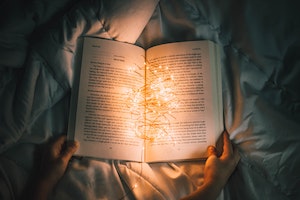The topic and specific trajectory of this collection results from the observation that posthumanism has become one of the most productive concepts in current literary and cultural research. At the same time, it leaves unanswered key questions concerning the implications for the study of narrative, undermining categories such as authorial or readerly agency, meaning, ‘literature’, or even the humanities as a theoretical and epistemic reference point. The articles in the collection therefore set out to explore modes of posthumanist reading, writing and analysis, in conflict or productive tension with theoretical paradigms such as postcolonial and gender studies. A special focus is placed on key concepts in the study of narrative, discussing computer-generated literature, serial and digital interactive narratives and the translation of posthumanist thinking into the pedagogic practice of teaching literature. Building on the by now substantially expanded corpus of posthumanist work by the likes of Braidotti, Colebrooke, Herbrechter and Wolfe, it elaborates on the notion that ‘reading in ruins’ provides a fruitful avenue for rethinking the meaning and practice of literary reading and the study of narrative in the twenty-first century.
This Special Collection has been guest edited by:
Julia Hoydis – University of Duisburg-Essen
Roman Bartosch – University of Cologne
Reading in Ruins: Exploring Posthumanist Narrative Studies
Meaning after Humanism? On Reading in Ruins
Julia Hoydis and Roman Bartosch
2021-12-16 Volume 7 • Issue 2 • 2021
Also a part of:
Special Collection: Reading in Ruins: Exploring Posthumanist Narrative Studies
Posthuman/ist Literature? Don DeLillo’s Point Omega and Zero K
Stefan Herbrechter
2020-10-07 Volume 6 • Issue 2 • 2020 • 18
Also a part of:
Special Collection: Reading in Ruins: Exploring Posthumanist Narrative Studies
The Ship Who Sang: Feminism, the Posthuman, and Similarity
Nicole Falkenhayner
2020-10-12 Volume 6 • Issue 2 • 2020 • 21
Also a part of:
Special Collection: Reading in Ruins: Exploring Posthumanist Narrative Studies
Computer-Generated Text as a Posthuman Mode of Literature Production
Annika Elstermann
2020-12-23 Volume 6 • Issue 2 • 2020 • 31
Also a part of:
Special Collection: Reading in Ruins: Exploring Posthumanist Narrative Studies
Special Collections
-
Diversity and Competition within the Latin Church: The Secular-Mendicant Controversy and its Long Aftermath (13th–20th Centuries)
Thinking the Political: Theory, Literature, Practice
Poetry Off the Page: Intersecting Practices and Traditions in British Poetry Performance
Humour as a Human Right
Cultural Heritage Data for Research: Opening Museum Collections, Project Data and Digital Images for Research, Query and Discovery
Literature as Imaginary Archive: Ephemera and Modern Literary Production
Caliban's Mirror: Reflections of James Joyce and Oscar Wilde
Cultural Representations of Machine Vision
The Public Curatorship of the Medieval Past
Medieval Minds and Matter
Representing the Medieval in Popular Culture: Remembering the Angevins
The Politics and History of Menstruation: Contextualising the Scottish Campaign to End Period Poverty
Production Archives 03: Archival Practices
Production Archives 02: Production Contexts
Production Archives 01: Puppets for Action
Representing Classical Music in the Twenty-First Century
The Pathological Body: European Literary and Cultural Perspectives in the Age of Modern Medicine
Binary Modernisms: Re/Appropriations of Modernist Art in the Digital Age
Local and Universal in Irish Literature and Culture
Reading in Ruins: Exploring Posthumanist Narrative Studies
The Language of Perspective
Nancy Astor, Public Women and Gendered Political Culture in Interwar Britain
The Working-Class Avant-Garde
Colonialities in Dispute: Discourses on Colonialism and Race in the Spanish State
Powering the Future: Energy Resources in Science Fiction and Fantasy
Writers and Intellectuals on Britain and Europe, 1918–2018
Literature, Law and Psychoanalysis
Muslims in the Media
Encounters between Asian and Western Art in the 20th and 21st centuries: a liberating influence for Asia?
Waste: Disposability, Decay, and Depletion
Pride Revisited: Cinema, Activism and Re-Activation
New Approaches to Late Medieval Court Records
Utopian Art and Literature from Modern India
Right-Wing Populism and Mediated Activism: Creative Responses and Counter-Narratives
Representing Climate: Local to Global
Cultivating Spheres: Agriculture, Technical Communication, and the Publics
Freedom After Neoliberalism
The Medieval Brain
Remaking Collections
New Approaches to Medieval Water Studies
Imaginaries of the Future 01: Bodies and Media
Imaginaries of the Future 02: Politics, Poetics, Place
Imaginaries of the Future 03: Utopia at the Border
Postcolonial Perspectives in Game Studies
Station Eleven and Twenty-First-Century Writing
#Agreement20
What’s Left? Marxism, Literature and Culture in the 21st Century
New Voices in Jewish-American Literature
Authors, Narratives, and Audiences in Medieval Saints’ Lives
From TV To Film
American Literature & the Transnational Marketplace
Mnemosyne
Healing Gods, Heroes and Rituals in the Graeco-Roman World
The Abolition of the University
